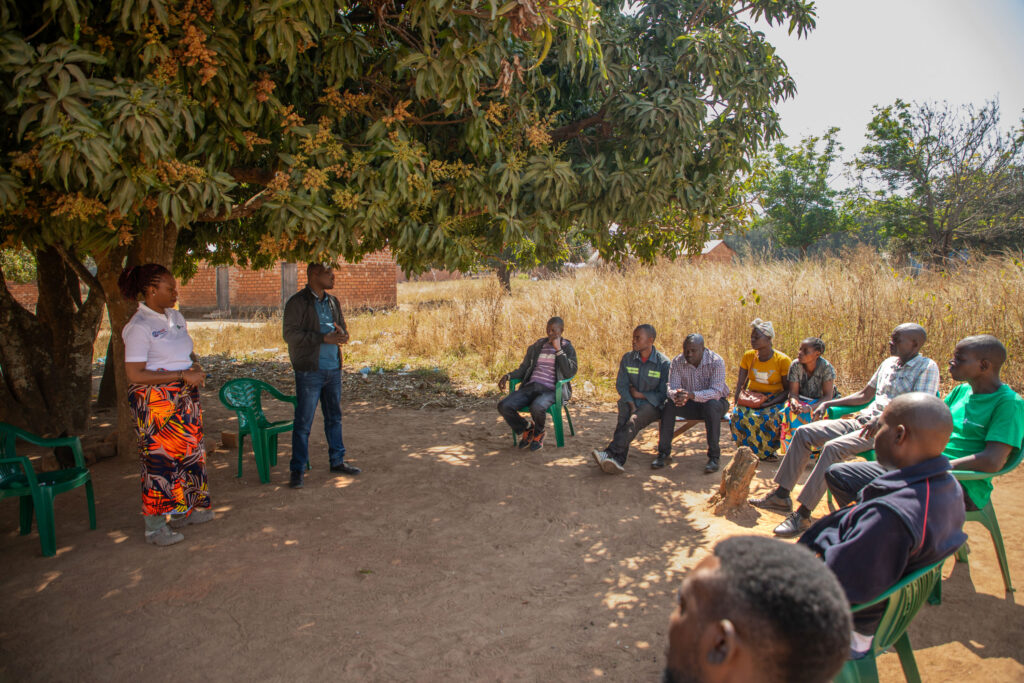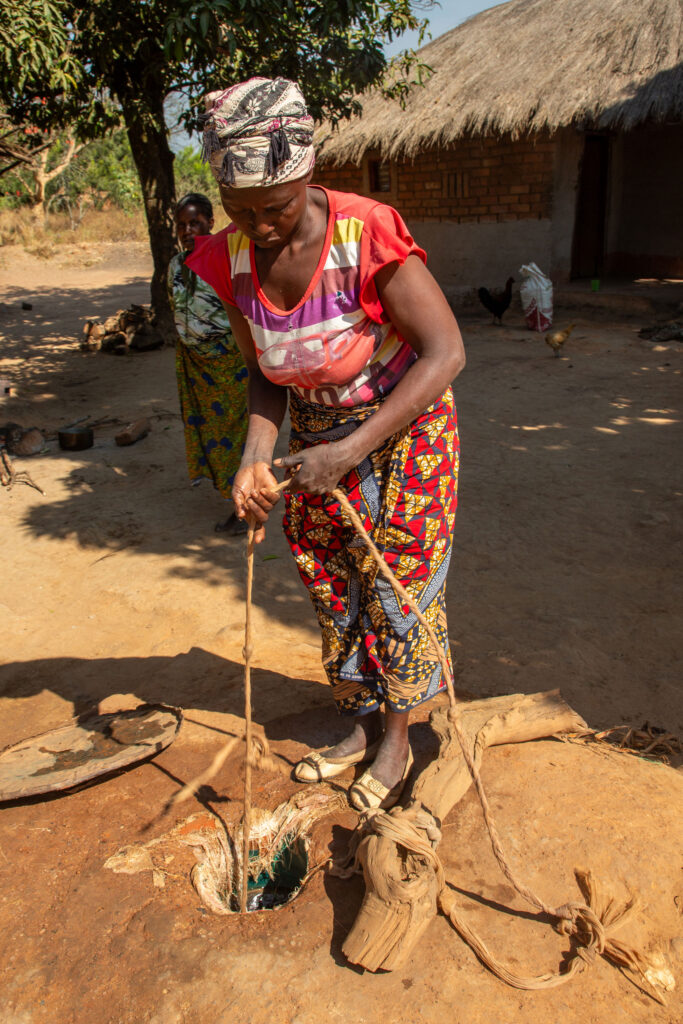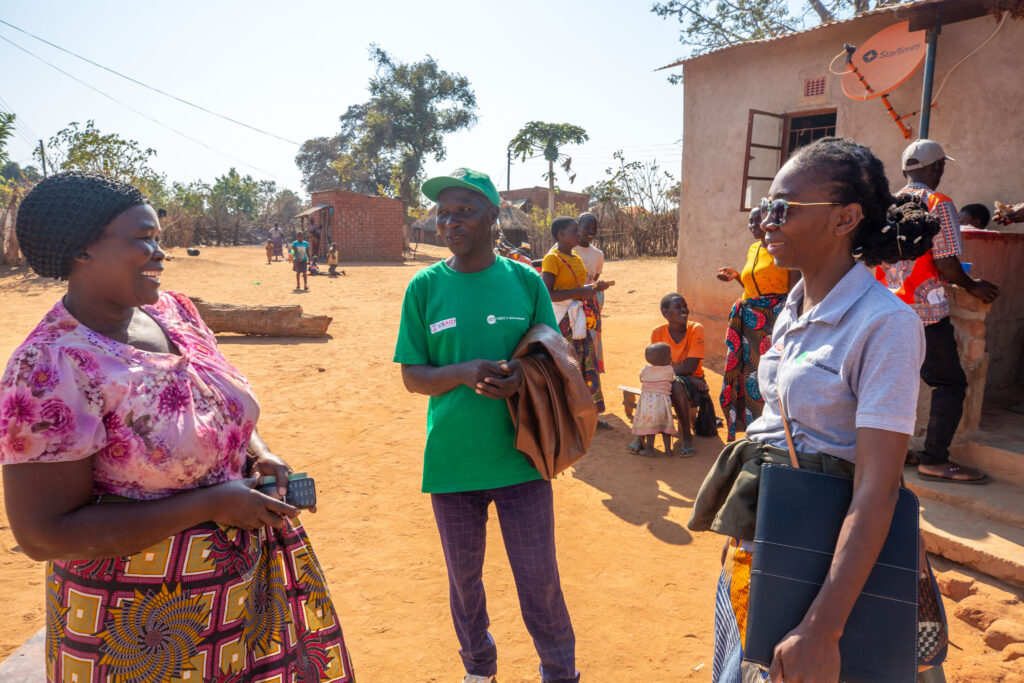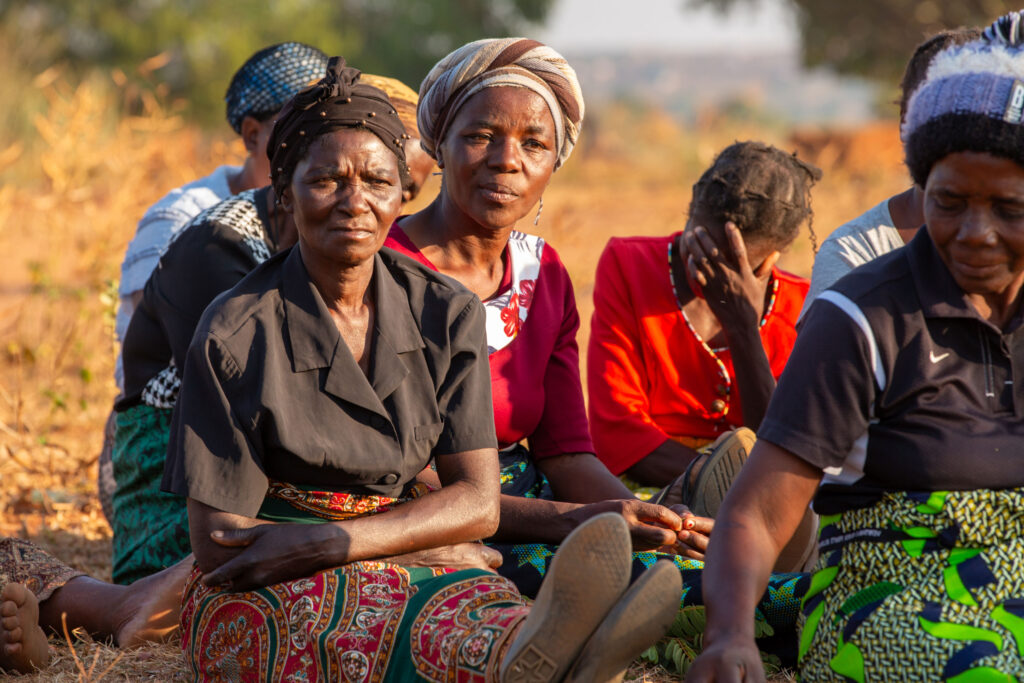This article was originally published in RE Magazine, NRECA’s flagship publication, on October 29, 2024.
Authors: Zuraidah Hoffman and Erin Kelly

In the small Zambian town of Ntatumbila, most of the important civic decisions are made beneath one of the village’s mature shade trees, where groups of residents can gather and deliberate protected from the fierce southern African sun.
It was under one such tree next to the town’s school that 150 villagers assembled in July 2023 to approve the bylaws and elect the board of directors for Zambia’s first member-owned utility, the Ntatumbila Power Electric Cooperative (NPEC).One year later, as the final work is being completed on the co-op’s minigrid system, Godfrey Siame, the headman of Ntatumbila, sits beneath that tree and thinks about how much things are changing.
“The community is excited about the electricity that is coming,” he says.
Residents are replacing their thatched roofs with more electricity-friendly sheet metal, and people who currently live outside that town are starting to build new homes near the coming grid.
“They’re getting ready.”
The coming of electricity will change our lives. You’ll find big shops, big salons, big barber shops. A lot of things will mushroom in our area. After a year, this community will change.
‘Very Supportive’
Located in the Northern Province, Ntatumbila is one of two Zambian communities that have begun the work to create electric cooperatives. At least three more are planned over the next two years.
An NRECA International team based in the Zambian capital of Lusaka is overseeing the Zambia Electric Cooperative Development Program (ZECDP), a new government initiative funded by the U.S. Agency for International Development (USAID) and in partnership with Zambia’s Rural Electrification Authority (REA).
The team conducts field surveys and evaluates sites throughout the country, coupled with intensive community awareness and engagement campaigns to teach people about the electric cooperative model, the benefits of becoming a member and how affordable and reliable electricity can improve their lives.
“Without the community, nothing can work out,” says Ernest Lupiya, ZECDP’s community outreach specialist. “When we first started the awareness campaign [in Ntatumbila], we had many meetings to explain the concept. Once they understood the principles of the cooperative model, they were very supportive.”
When the community voted to form an electric cooperative, Lupiya, Caswell Silavwe, NPEC’s board chairman, and other community leaders went door-to-door to explain how an electric co-op works.
Work on standing up NPEC has been steady. Soon after the co-op was formed, NRECA International held a governance training program for the new board of directors in Lusaka. This summer, the co-op’s 191 members held their second general assembly as construction for the solar-powered minigrid began.
Since construction began in September, more than 60 additional residents have signed up to be members. Co-op staff are being hired now, and power is expected to start flowing to about 400 homes by the end of the year.
“The coming of electricity will change our lives,” says Silavwe, who was re-elected chairman of the NPEC board this summer. “You’ll find big shops, big salons, big barber shops. A lot of things will mushroom in our area. After a year, this community will change.”
‘They Decide’
In Zambia, with a population of about 20 million people, only about 30% of the population has access to power, and that drops to just 8% in the rural areas, says Michael Chomba, assistant director of the Department of Cooperatives and Entrepreneurship Development under the Ministry of Small and Medium Enterprises.

“I think [creating the new electric co-ops] is something that is most welcome,” Chomba says. “This is going to contribute immensely to Zambians accessing electricity. With power, there’s a lot that our citizens can do.”
Zambia’s development efforts are guided by its Vision 2030 program, which includes a goal of universal access to clean, reliable and affordable energy by 2030. Zambia REA CEO Linus Chanda sees electric co-ops as critical to reaching that mark.
Nearly all the electricity for Zambia’s national grid comes from hydropower. But persistent drought over the past several years has cut power production and led to power rationing and brownouts. Chanda hopes co-op microgrids can help expand power access without putting additional strain on the grid.
“If you scale down away from the national utility and put in co-ops … they decide who is going to manage the co-op, and the power is within their hands.”
Petauke Electric Cooperative
About 900 miles south of Ntatumbila, Zambia’s second electric co-op, the Petauke Electric Cooperative (PEC), was formed in April this year. NRECA International worked with the residents of five communities in the Petauke district to lay the groundwork for the co-op. The town is located close to transmission infrastructure for the national grid and the co-op will run off central-station power.

Mikiwe Banda, the headwoman in the village of Zuze in Petauke, says she thinks the electric co-op model is the best way of bringing power to her community.
“This will organize the community members,” she says. “And by participating in voting, we can choose a leader who we want to work with, so the cooperative can function on the principles of good leadership.”
Social and Gender Inclusion
One of the organizing principles of the ZECDP is a relatively new concept in cooperative development work: the imperative to ensure that women, young people and disadvantaged groups can share in the successes of the co-op. USAID has included a program in its work that is aimed at increasing participation of women as active co-op members, employees and directors.
“In the early stages of forming the cooperatives, bylaws are being created, we have been deliberate about including clauses that promote gender equality,” says Gladys Musaba, ZECDP’s gender social inclusion specialist. “We have a specific number of [board] seats that have been reserved for women. We want them to take part in voting, take part in the decision-making processes of the cooperatives and then equitably benefit from the economic benefits that come with belonging to the cooperative.”

Musaba travels frequently to Ntatumbila and Petauke to sit down with residents and talk about the importance of women and youth participating in the building process and taking leadership roles.
“One of the principles is around equality, equity within the cooperative, says Musaba. “Having women, men, young people, people of diverse, beliefs, cultures within a cooperative brings a diverse perspective around how people think, and how people embrace opportunities that are available.”
The creation of successful co-ops in Zambia follows a similar trend with NRECA International projects in Liberia and Uganda. But among international funding agencies and many sub-Saharan governments, the proven value of the electric cooperative model has yet to catch on, and financial and political commitments can be hard to come by.
“We know that electric cooperatives can become engines of community economic development,” says Dan Waddle, NRECA International’s senior vice president. “We also know from direct experience how they can succeed even when there is little initial experience and capacity to establish and manage utility operations. However, at its core, our consistent challenge is access to sustained financing to build the infrastructure and keep the lights on.”
Anticipation is building in Ntatumbila and Petauke as work continues toward turning on the lights. In Ntatumbila, people come by regularly just to watch construction on the co-op’s headquarters building.
Doreen Bwalya, NRECA International’s ZECDP manager, says she’s been struck from the beginning by the communities’ enthusiasm and determination to embrace the challenges of building a co-op.
“It’s that excitement and wanting to take ownership which really convinces me that once the co-op comes and the power comes, they’ll be able to manage it,” she says. “Our work is about changing lives, and it has been evident in the people we talk to that now they’re looking at things differently and are more confident.
“We don’t have to wait for the electricity being turned on; changes are already happening in people’s lives.”